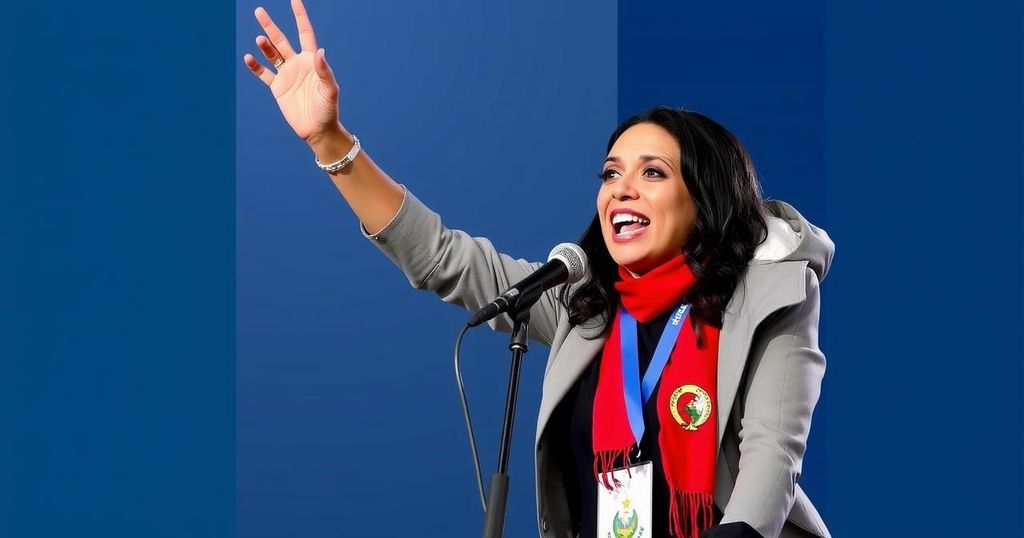Yamandú Orsi Clinches Presidential Victory in Uruguay’s Close Election

Yamandú Orsi, a leftist candidate, won Uruguay’s presidential runoff against Álvaro Delgado, marking a shift towards left-wing governance amid global anti-incumbent sentiments. Orsi received over 49% of the votes, with high voter turnout. His plans include moderate reforms focused on economic growth and social welfare, promising dialogue and unity as he prepares for a leadership transition in March 2025.
In a closely contested runoff election, Yamandú Orsi, a left-wing candidate from the Broad Front coalition, secured a narrow victory over Álvaro Delgado of the center-right ruling coalition, marking a significant political shift in Uruguay. The outcome of this election, which continues a global trend of anti-incumbent sentiment, saw Orsi garner over 49% of the vote compared to Delgado’s 46%, with impressive voter turnout at 90%. Orsi’s campaign resonated with the electorate amid mounting dissatisfaction with economic challenges in the post-pandemic era, yet his platform maintains a balance of market-friendly policies along with social welfare initiatives.
Upon his win, Orsi expressed his commitment to unifying Uruguay’s diverse population, acknowledging the close nature of the election and the feelings of those who did not support his victory. Notable support came from former President José “Pepe” Mujica, who praised the election’s outcome and emphasized the stability of Uruguay’s democratic institutions. As President-elect, Orsi indicated intentions to implement targeted reforms aimed at refreshing the agricultural sector, presenting tax incentives for investment, and addressing social security within a modest framework.
His triumph offers a clear response to the frustrations experienced under the previous administration, where discontent surrounding inflation and wage stagnation has been palpable. In contrast, Delgado’s campaign highlighted continuity of existing policies and projected economic growth, but ultimately failed to resonate sufficiently with voters. As Uruguay anticipates a transition in leadership starting 1 March 2025, Orsi’s pledges for a collaborative and respectful approach may indicate a new chapter in the country’s governance.
The recent presidential election in Uruguay serves as a reflection of a broader global political trend where incumbent parties are facing significant challenges. Yamandú Orsi’s victory represents a leftward shift in the country’s leadership, following a series of transformative elections worldwide in 2024. The context of this election is shaped by public dissatisfaction with economic conditions worsened by the pandemic, alongside a unique political landscape where compulsory voting encourages high voter turnout. Orsi’s previous tenure as mayor and moderate campaign strategy appealed to a substantial voter base that craved stability and progress without the populism seen in neighboring countries. The electoral outcome signals a desire in Uruguay for policies that combine economic prudence with social welfare, reminiscent of the previous Broad Front administration which made significant strides in progressive reforms during 2005 to 2020. The broader implications of Orsi’s victory will be closely observed within the Mercosur trading bloc, particularly regarding Uruguay’s trade dynamics with larger economies like China.
Yamandú Orsi’s election as Uruguay’s President-elect signals a pivotal movement towards leftist governance, responding to rising public dissatisfaction with the incumbent administration’s handling of economic issues. His moderate agenda focuses on social progress alongside market-friendly policies, aiming to foster dialogue and national unity. The significant voter turnout and Orsi’s commitment to governance reflect the electorate’s desire for a transformative but stable approach as Uruguay enters a new era of leadership.
Original Source: indianexpress.com








